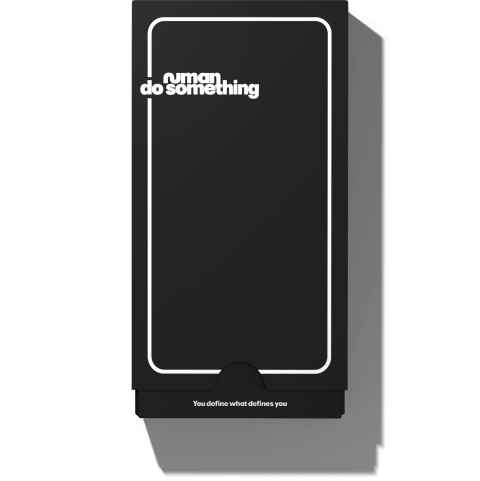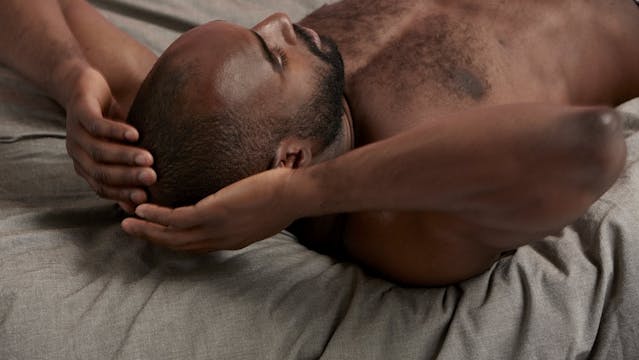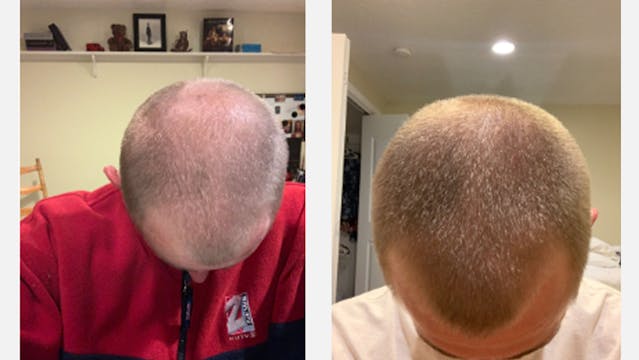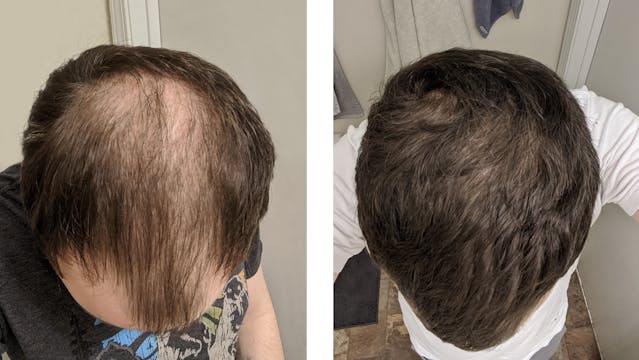• Your third decade of life is the perfect time to check if your health is up to scratch and make simple adjustments if not
• Fitness writer Joel Snape shares nine quick tests you can do right now
Age is, of course, nothing but a number. Still, 30 is a good point to stop for a breather and take stock; to think about actually starting a proper pension, or whether you’ll ever tick off that trip to swim the Hellespont.
It’s the perfect time to check up on your health too. Thirty’s the age when things can begin to creak or collapse, but it’s also the point where any damage is relatively easy to undo.
And of course, as you’ll read across Numankind and in our Book of Erections, having a healthy lifestyle whether your 33 or 63 is one of the key ways to avoid erectile issues and ED.
So read through the list below. While it’s by no means definitive (and never compensates for a visit to the doctor), it’s a good indication on how you’re faring fitness wise. We’ve also included tips on how to start fixing any problems you might have. It’s going to be a great decade.
1. You have at least three types of veg in your fridge
There are always going to be times when five a day isn’t plausible – when work is piling up, nobody has the time to make an edamame-and-sprouted-legume Buddha bowl. But if there’s no greenery in your fridge, that’s a sign your healthy eating may not be on track.
You’ll get the best bang for your nutritional buck from combining dark leafy greens with cruciferous or colourful veg and keeping it in plain sight. Studies suggest you’re more likely to eat what you see, so keep nutritious foods out of the crisper drawer and those sugary treats hidden away.
2. You can balance on one leg (with your eyes tight shut)
Stand on one leg, close your eyes and count to ten, slowly. If you fall over, it may be down to an injury or imbalance you’ve never addressed – perhaps a lack of core strength, or something more serious like an inner ear disorder. If things don’t improve with a spot of strength training (and practice), consider visiting your doctor.
3. You can manage the ‘wall squat’
No, not the old back-against-the-wall trick they made you do at school — that’s a wall sit, and still worth the occasional go. For this one, keep your feet a comfortable distance apart, put your toes against a wall and ‘squat’ down and back until your hip crease drops below your knee. Did you fall over? That’s because years of sitting have put your glute muscles to sleep. Wake them up with squats, lunges, fire hydrants and clamshells.
4. You can (happily) go three hours without checking your phone
That’s not much, is it? That’s basically a film and a burger afterwards, talking to whoever you’re with. Or waking up on a Saturday without checking your email or Twitter feed.
It’s easy to be constantly stimulated by the steady drip of social media and the #Ladsladslads WhatsApp group, but you’ll feel better if you ignore it occasionally. And with ‘text neck’ a growing medical issue according to the New York Times, your body may thank you for it later.
5. You can sit on the floor and get up without too much difficulty
By difficulty, we mean without using your hands or knees. In a study of more than 2,000 ageing people, those best able to manage this feat had a lower incidence of mortality than less physically capable people.
While some researchers claim this test can be predictive of how long you’ll live, we wouldn’t go that far. Still, if you struggle, you should look to improve your flexibility and muscle strength. Start by adding squats and press-ups into your daily routine.
6. You can remember the last time you had a week off drinking
Current NHS guidelines recommend moderating how much you get through in a single night, but also having several days off alcohol a week, giving your liver a chance to recover and repair. You should occasionally strive for longer.
Organise some social events without it, or just switch your language on Friday night from “I can’t/shouldn’t,” to “I’m not drinking this week.” People are less likely to pressure you and you’ll reframe the need for willpower in your own mind.
7. You have a bedtime ‘routine’
Gratitude meditation and a moisturising scrub? A to-do list for the next day? Ten minutes with a Jack Reacher paperback? Within reason, it doesn’t much matter what you do, but keeping the time and routine fairly consistent will help you sleep better, nudging you towards a whole raft of beneficial health effects.
One caveat: steering clear of screens for half an hour before bed — or downloading an app like f.lux, which leeches the blue light out of them — will aid your body’s production of the sleep hormone melatonin and help your quality of shuteye.
8. You can do 10 press-ups
We’re talking chest to the floor, arms straight at the top of the movement and a body straight as an ironing board at every stage in between.
Press-ups are a fundamental test of core and upper-body strength, and also a good indicator that you’re maintaining the muscle and bone density you’ll want for a healthy later life. If you struggle with 10 proper press-ups, start with 10 or 15 a day upright against a wall and build your strength from there.
9. And you can still sprint up the stairs at work
There are days, let’s be honest, when the lifts won’t cut it. The foyer’s a seething mass of humanity, and standing nose-to-elbow with Peter from HR as he spoils all last night’s telly is less appealing than eight flights of stairs.
The question is, are you going to make it to the top with a smile on your face, or out of breath and slightly bedraggled? If it’s the latter, resolve to take the stairs more often. New research suggests that even ultra-short bursts of HIIPA (or high-intensity incidental physical activity) can be beneficial for heart health, so those two horrendous minutes won’t be wasted.
The numan take
Your thirties are a great time to get on top of your health. The changes you make now can have a lasting and beneficial effect through your later decades. It couldn’t really be simpler: move more, eat less of the bad stuff and more of the good, and get a good night’s sleep whenever you can.







